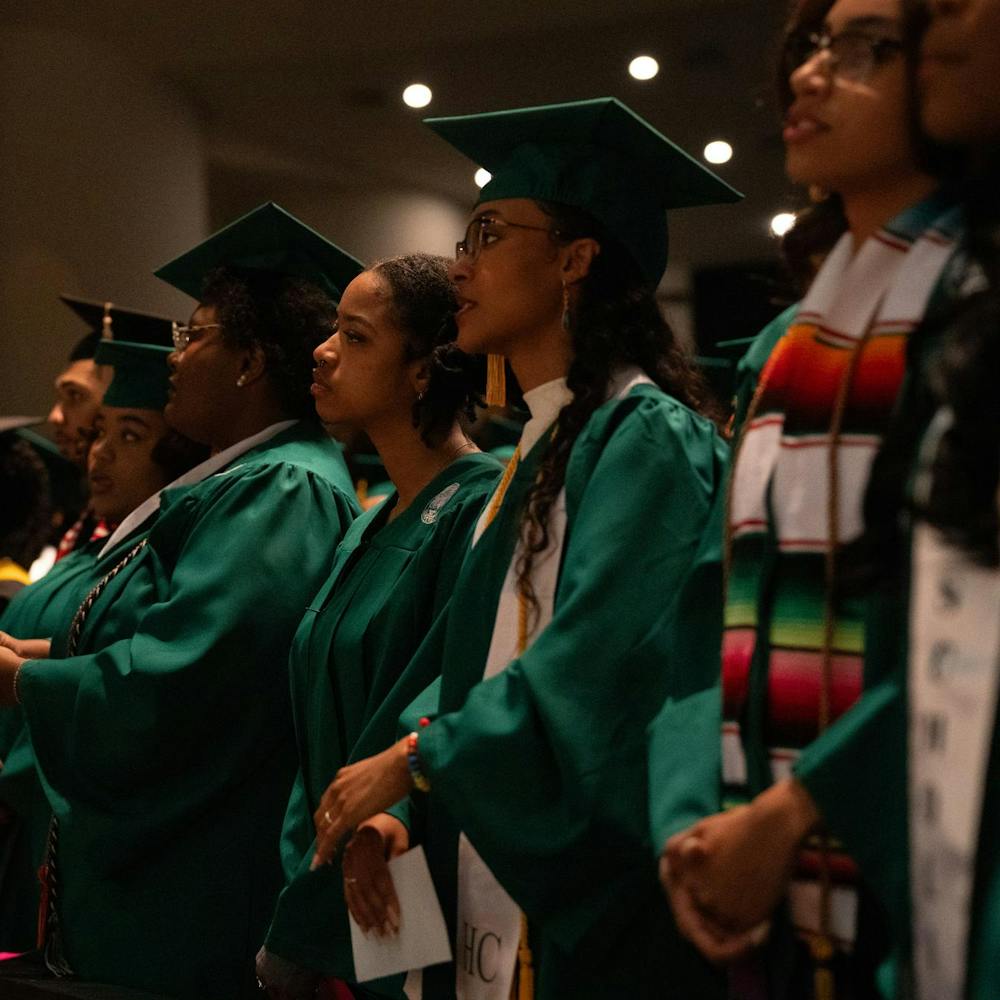Editor’s Note: Views expressed in guest columns and letters to the editor reflect the views of the author, not the views of The State News.
A few weeks ago, I visited Rochester High School, or RHS, to visit my high school choir director, Mrs. Plotzke.
I originally went to pick up a CD she burned me — a compilation of my choir’s songs we recorded over the course of my four years under her instruction — but what happened instead was a deeply engaging political discussion over the course of two hours.
I knew that Mrs. Plotzke, a teacher of the public school system, tends to lean toward the left on the political spectrum, so I decided I would bounce some of my conservative ideas off of her. Though we began by reminiscing and talking about choir-related topics, we quickly covered everything, albeit briefly, from the legalization of drugs to gay marriage. We differed distinctly on our opinion of the need of large or small government, but when we started talking about the education sector, I realized action needed to be taken.
In the Rochester Community Schools district, students no longer will be ranked as valedictorian, salutatorian or a top scholar based purely on their grades. This change in the system is borrowed from other school districts that have put in a similar policy and will likely be copied many more times if successful.
Under the new system, the honor of top scholar now will be achieved by collecting points, which will be earned based on factors such as the rigor of classes, Advanced Placement, or AP, scores and ACT scores. Grades also will remain a factor in allocating points. This method of ranking students addresses the concern that a student might take an easier way to the top of class rankings by taking easier classes.
In any system, being among the elite is an honor, and no one is trying to say top scholars who were ranked by GPA were undeserving. In most aspects, this change will be for the good, as the incentives for taking more rigorous classes will be clearer. Students with the goal of being a top scholar now will see a greater reason to take difficult classes.
Compared to before when the only benefit to taking a more challenging, GPA-damaging class was the possible AP credit, students now will choose to take these classes because they will have the opportunity to earn more points, rise in the rankings and possibly become more appealing to colleges.
Conversely, classes that are easier or do not have state-certified academic material will be worth fewer points. This seems to make sense for most classes, except for one type of course, which unfairly will be grouped with classes such as physical education, the home studies and crafts: music classes, such as choir and band.
Students no longer will take music classes, for fear of losing out on points. Because this system will be fully in place in two years, the effects already are being seen. Mrs. Plotzke told me how the program already has shrunk by 30 students, despite her program being one of the most successful in Michigan.
Students who chose to take choir became not only performers, but a family as well. We grew together, not only as students working toward a goal, but friends who stay in contact to this day. However, the benefits of the choir program at my school go beyond unconvincing sentiments.
The reason music programs tend to be the first things to be cut in cash-strapped schools is because not only are they expensive — for instruments, uniforms and travel money — but also because many administrators fail to see substantial benefits. This point of view is understandable; school administrators have yet to be convinced classes such as band and choir positively affect a student’s math, science or reading scores.
However, when there is correlation, people go looking for causation because, unfortunately, the two do not always go together. Studies have shown students with involvement in music score higher on not only exams such as the SAT and ACT, but also reading, science and math proficiency exams as well.
While at RHS, top scholars, valedictorians and salutatorians always seemed to be in my choir class. Although I mentioned earlier that one should not consider correlation to be causation, it certainly poses some interesting questions as to why this is the case. Some students from my class are continuing with music, but many are pursuing other dreams, and choir remains an important fraction of their education.
Although this is only at one school, there likely are many more music programs out there that yield the same result.
It should also be noted MSU allows students of certain majors to take vocal classes instead of languages to fulfill graduation requirements. Personally, I consider this fantastic news. No hablo Español bien.
All this adds up to one thing: choir should be considered a more academic class. If MSU considers it scholastic enough to move students toward a college degree, high schools should view it more important in obtaining a diploma.
Jameson Joyce is a guest columnist at The State News and a James Madison sophomore. Reach him at joyceja1@msu.edu.
Support student media!
Please consider donating to The State News and help fund the future of journalism.
Discussion
Share and discuss “Music education must be protected, preserved” on social media.







